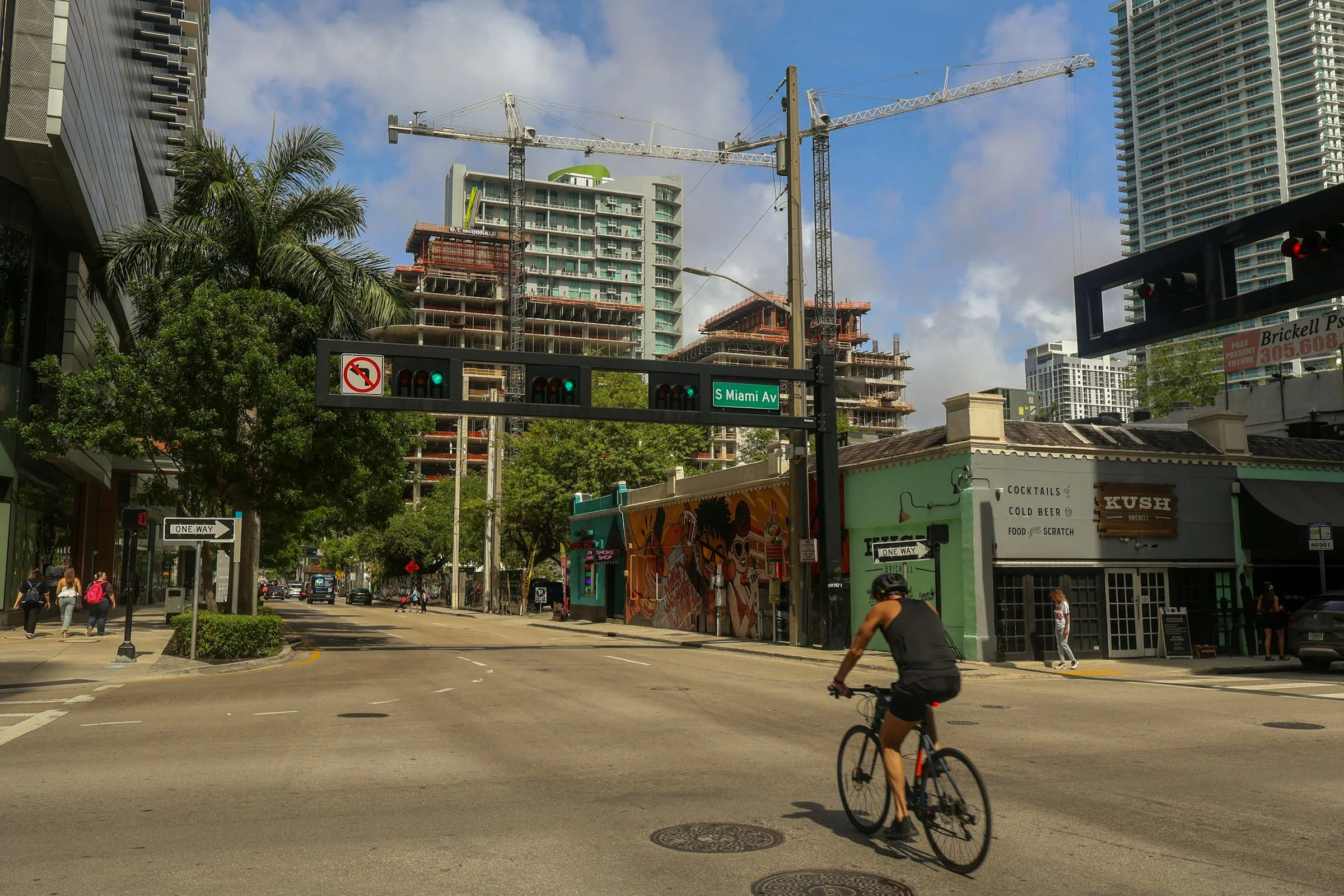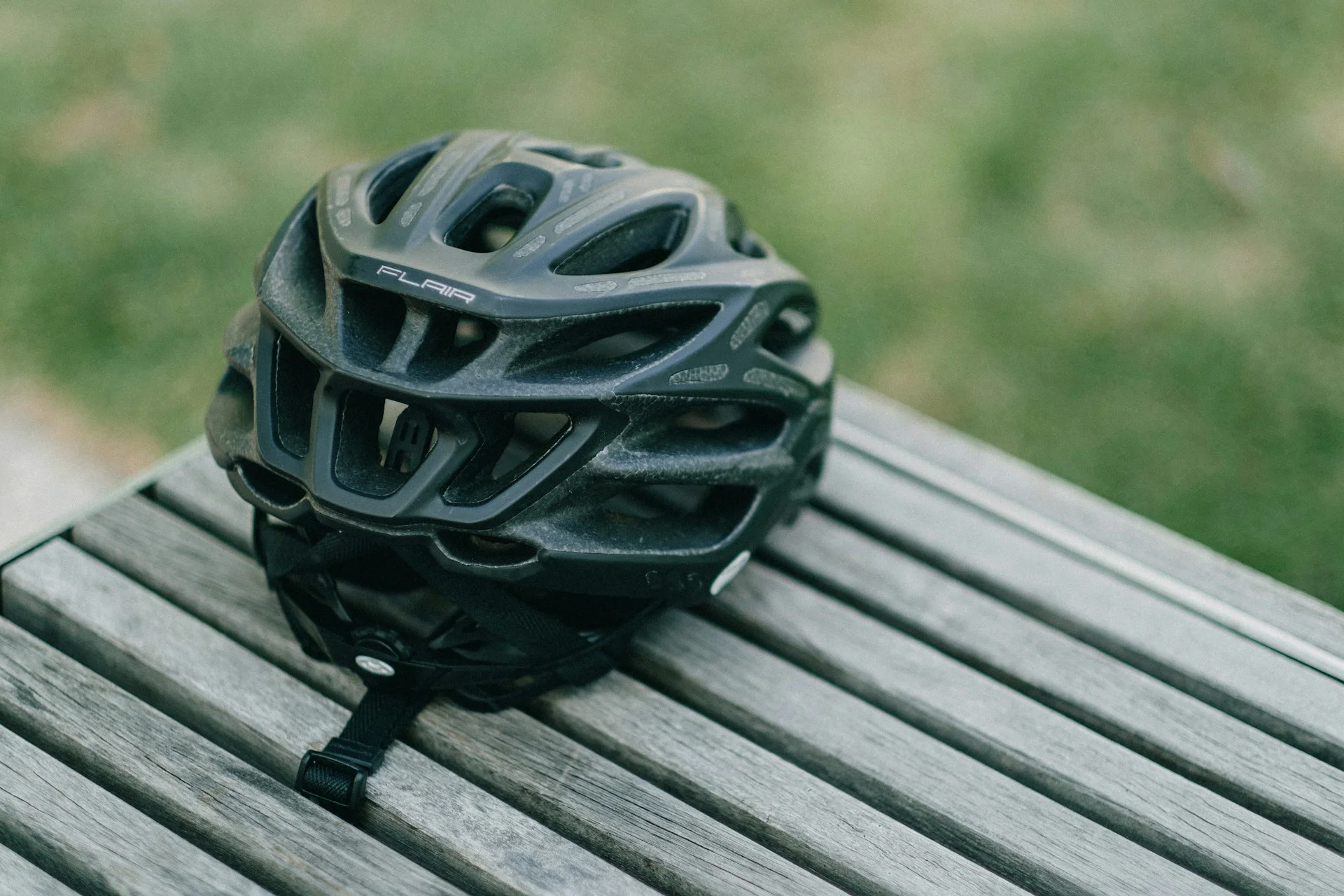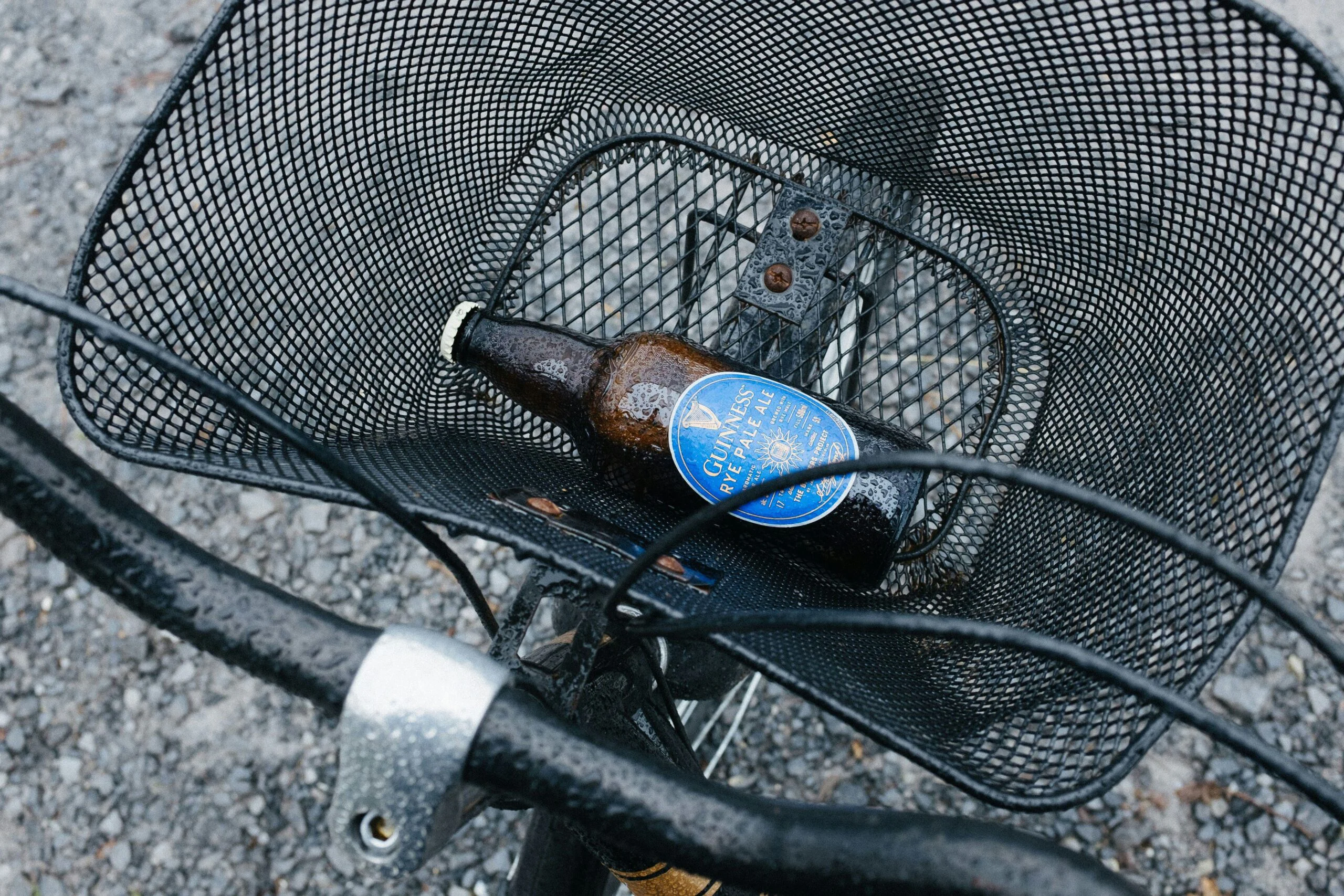Yes, it is possible to get a DUI in Miami for riding a bike under the influence. It is widely known that operating a vehicle after consuming alcohol is strictly prohibited. Does it mean that a bicycle can be a great alternative for getting around the city in such a state?
Well, Florida DUI statutes apply to all vehicles, not just those that have motors. If you want to stay out of trouble while riding a bicycle in Miami, you’ve come to the right place. Today, we’ll delve into the intricacies of DUI laws and their impact on riders.
- What Is a DUI? (Definition & Legal Concept)
- Bicycles Under DUI Laws: General U.S. Approach
- Florida Law & Miami: Does Florida Include Bicycles in DUI Statutes?
- What Happens If You Ride a Bike While Intoxicated in Miami?
- Penalties & Consequences
- Statistics & Risks: Alcohol + Bicycles
- Key Bicyclist Crash & Alcohol Stats (US)
- Practical Advice & Safety Tips
- When to Consult a Lawyer?
- Key Takeaways
- Resources
- Get a FREE case evaluation today
What Is a DUI? (Definition & Legal Concept)
The first thing that comes to mind when you hear about Driving Under the Influence (DUI) is drunk driving. However, the concept of driving under the influence does not concern only alcohol. It encompasses all existing mind-altering substances. Whether you are stopped under the influence of narcotics or even prescription drugs, you may be charged with a corresponding violation.
Across most states, the legally tolerated percentage of blood alcohol concentration (BAC) is 0.08%. However, that does not necessarily mean that you are off the hook if the concentration of alcohol in your blood is lower than that. It is the officer who will decide whether to cite you or let you go.
Let’s not forget that in many states, the term ‘vehicle’ isn’t limited to cars and motor vehicles in general. It sometimes refers to bicycles, e-bikes, and even horses. Also, you should understand that you do not need to be falling off your bike or swerving all over the place to be stopped and charged. It does not matter how you feel. It matters how safe it is to share the road with you and with other users.
Bicycles Under DUI Laws: General U.S. Approach
There isn’t a universal DUI statute applicable to intoxicated riders in America. Every state has the right to enact separate laws to control the situation in its jurisdiction. Sometimes, even separate municipalities within the same state can treat the matter differently.
For instance, in Florida, Colorado, Kentucky, and Oregon, bicycles are defined as legal vehicles and thus impaired riders are subject to existing DUI charges. In Arizona, South Dakota, and Tennessee, you may escape formal Operating Under the Influence (OUI) citations, since statewide laws apply to motor vehicles exclusively.
The situation is absolutely unique in Washington, where intoxicated bicyclists can be stopped by the police but won’t face any charges. In Kansas, statewide laws do not recognize bicyclists as legal operators, but the authorities in the city of Wichita have a different opinion and impose substantial fines for impaired cycling.
As you can see, there’s always a legal side when it comes to impaired vehicle operation. Often, the law isn’t on your side, at least in most US states.
Florida Law & Miami: Does Florida Include Bicycles in DUI Statutes?
The state of Florida does include bicycles in its DUI statutes. However, many riders are unaware of these laws. So, the impaired riding offenses usually come as a surprise.
Chapter 316, Section 193 of the state statutes says that any person who operates a device that is defined as a vehicle and has a breath or blood alcohol level over 0.08% is driving intoxicated. The same applies to riders who cycle under the influence of any controlled substances.
How do these regulations look in practice? Suppose you’ve had a few drinks and decide to bike back home. If an officer sees you and decides, for whatever reason, that you are drunk, they will stop you. Upon further consideration, the police may want to test you. In case the tests confirm their suspicions, you will be charged with a corresponding penalty.
Definition of “Vehicle” in Florida DUI Laws
It all starts with precise definitions. Some states in the US do not include bicycles in the category of legally recognized vehicles. But not Florida.
Under existing Florida state laws (§ 316.003(109)), every means of transport, whether it has a motor or not, is classified as a vehicle.
Thus, it is subject to DUI regulations. There are a few exceptions, but neither traditional bicycles nor e-bikes are on the list.
Criminal vs. Administrative Penalties: What’s the Difference for Bikes?
Before you decide to ignore the laws and risk cycling under the influence, you should learn about the punishment. Usually, impaired operation of a vehicle is followed by two main types of penalties: criminal and administrative. The former includes, but is not limited to, fines, public service, probation, and jail time. The latter implies license suspension, ignition interlock device installation, and even license revocation.
Do both types apply to bike riders? Usually, they don’t. In Florida, intoxicated bicyclists are primarily subject to criminal penalties. Most administrative offenses are reserved for motor vehicle operators.
What Happens If You Ride a Bike While Intoxicated in Miami?
It is easy and quite natural to overestimate your condition when you are riding a bike impaired in Miami. However, it is naïve to assume that the police will do the same. If a police officer spots a cyclist who behaves unnaturally or outright dangerously, they will stop you.
If the police doubt your answers, they will question and test you after pulling you over. If they find you guilty of riding a bicycle under the influence, they can even arrest you.
Field Sobriety Tests & Breath Tests
You may wonder how the police officers determine if a rider is sober or impaired. Police officers can apply a variety of tests in such situations. The first thing they may do is ask you to perform one or a couple of field tests. These tests include walking in a straight line, touching your nose with your finger, staying still with your feet together and your eyes closed, etc.
Should you fail those, the officer may ask you to perform a breath test to check the levels of alcohol in your breath. In case it exceeds 0.08%, you may be arrested for DUI. Sometimes, additional tests, such as blood or urine analyses, are suggested. Riding drunk isn’t the only form of intoxication, and a field or breath test may not prove the presence of narcotics in your system.
Arrest, Booking & Charges
Riding under the influence is a serious offense, so getting arrested for riding your bicycle impaired is on the table. It depends on law enforcement officers to decide whether to arrest you on the scene. If you commit a serious offense, refuse to take tests, or obstruct officers in any other way, the nearest detention facility will escort you for booking.
The booking process often involves a series of questions aimed at gathering more information on the offender, a background examination, fingerprinting, and photographing. After that, you will receive the assigned charges and have to face the consequences of riding intoxicated. Remember, not being arrested doesn’t mean you won’t be punished.
Penalties & Consequences
Cycling under the influence isn’t a simple mistake that can be easily brushed off. An impaired rider often faces consequences just as serious as if they were driving a car. Although administrative charges are unlikely, criminal penalties, such as fines, probation, and even imprisonment, aren’t a light punishment.
First Offense Penalties
Suppose that you haven’t broken the law yet; the system may have some leniency in store for you. You will have to pay a substantial fine — from $500 to $1000 — for the first-time DUI offense. You may also spend up to a year in prison. There are instances when the court assigns both penalties.
On top of that, sometimes riders face 50 hours of community service and one year of probation. You should remember that riding under the influence is a criminal misdemeanor. Your record will reflect the charges, and they are unlikely to be removed.
Repeat Offenses / Aggravating Factors
More serious crimes often imply more severe penalties, and riding a bicycle under the influence is no exception. For example, if the police catch you drunk cycling for the second time, you will be charged with a $1000–$2000 fine and up to 9 months in prison. Keep in mind, the least you will spend in jail is 10 days (the mandatory serving time).
Each time you reoffend, the penalties will get more serious. Besides, different aggravating factors can intensify the punishment. The most typical aggravating conditions include, but aren’t limited to, the following:
- Blood alcohol level over 0.15%
- Minor passengers involved
- Serious injuries or property damage were involved
- Severe injuries involved
- Leaving the scene after the incident
Either of these factors can lead to more substantial fines and longer imprisonment sentences.
Impact on Driving Privileges / Records
As stated earlier, riding a bike under the influence does not trigger administrative penalties such as immediate license suspension. However, repetitive or extremely serious offenses will lead to a criminal conviction. All convictions are reported to the state, which means that they may appear on your driving record. That is, if you have a valid license. So, technically, a DUI offense can have a palpable impact on your future privileges, such as higher insurance premiums.
The best way to avoid these implications is to refrain from operating any vehicle while impaired. However, should anything happen, timely legal consultation with a field-savvy Miami law firm will help you protect your rights and ensure the fairest outcome.
Statistics & Risks: Alcohol + Bicycles
What could possibly go wrong if I have a few beers and hop on my bike afterward? That is a question that many people are still asking themselves before deciding to ride drunk. Things may change after you learn that around 34% of all bicyclists killed on U.S. roads in 2023 had either a drunk driver or a drunk bicyclist involved.
What’s interesting is that 14% of deadly accidents involved an impaired motor vehicle operator, and 18% of fatal crashes involved an intoxicated rider. Another peculiarity is closely connected with the age group of the deceased cyclists. Over one-third of bicyclists killed in traffic collisions were between 35 and 45 years old.
Even a single drink can compromise your concentration, reaction, and balance, which may lead to a deadly accident.
Key Bicyclist Crash & Alcohol Stats (US)
Almost twelve hundred bicyclists lost their lives in 2023, which accounts for around 3% of all traffic fatalities recorded across the country. Of course, alcohol and other controlled substances aren’t the only reason why these deadly accidents took place. However, out of almost 4K deadly accidents reported in Florida over the same year, 25% involved alcohol-impaired parties.
According to our comparative bike accident forecasts, the number of intoxicated riders dropped by 1% in 2024. However, the rates remain high — over 20%.
Practical Advice & Safety Tips
We can’t stop emphasizing the fact that no one should operate any vehicle while under the influence of any substances. Yet, there are a few additional practical tips that can help you avoid a dangerous situation and a potential criminal charge:
- Use alternative means of transportation. You can always call a taxi and get home safely. Besides, public transport is yet another great option in a situation like that.
- Plan your routes. Even if you decide to take your chances, it is a good idea to use the least busy roads possible. However, try to stick to well-lit streets if you are cycling after dusk.
- Wear protective gear. The state of Florida does not require adult riders to wear helmets, but it is a valid safety measure you can take to protect your own health.
- Keep away from dangerous maneuvers. Alcohol can affect your ability to read the situation on the road; that is why you should make as few maneuvers as possible. Follow traffic rules strictly.
When to Consult a Lawyer?
The fact that you’ve been stopped by a police officer in Miami while a little tipsy might make you initially assume that it isn’t a big deal — and it can be the case. However, bicycles are defined as rightful vehicles across the state, and DUI is a serious crime in Florida.
So if someone’s been hurt, or you’re about to be arrested, speaking with a legal representative is always a good idea, especially before you do or say anything that can potentially compromise your situation. You can call a lawyer, describe your problem, and inquire about your legal options.
At Bicycle Accident Lawyers Group, we offer free case evaluations for all our clients. Contact us today to make sure that your rights are protected and a minor misdemeanor does not turn into a serious criminal offense!
Key Takeaways
Florida statutes are far from being the simplest of all. The fact that there aren’t precise Bicycling Under the Influence regulations in place does not mean that you can’t be charged with a regular DUI if you decide to cycle impaired. Bicycles are legal vehicles under state law. This means that you can face different charges, ranging from fines to prison time, if you’re caught riding under the influence.
Alcohol and other mind-altering substances can seriously affect your judgment and lead to a serious accident. That is why calling a taxi should be your primary choice after a few beers, and consulting a skilled lawyer should be the first thing you do after a bicycle accident!
Resources
- DUI Laws in Florida
- Florida Statutes Title XXIII. Motor Vehicles § 316.193
- The 2025 Florida Statutes 316.003 Definitions
- Florida DUI and Administrative Suspension Laws
- The 2025 Florida Statutes, 316.2065 Bicycle regulations
- Traffic Safety Facts, 2023: Alcohol-Impaired Driving
- The 2025 Florida Statutes, Period of suspension or revocation






